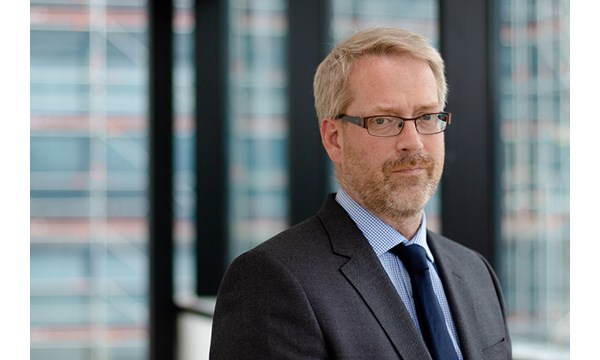Three critical factors to developing Africa’s oil and gas resources
Africa is blessed with abundant oil and gas resources but stands at a crossroads. The continent is yet to realise the full potential of its energy wealth
3 minute read
Gavin Thompson
Vice Chairman, Energy – Europe, Middle East & Africa

Gavin Thompson
Vice Chairman, Energy – Europe, Middle East & Africa
Gavin oversees our Europe, Middle East and Africa research.
Latest articles by Gavin
-
The Edge
Can emissions taxes decarbonise the LNG industry?
-
The Edge
Can carbon offsets deliver for oil and gas companies?
-
The Edge
Re-thinking energy transition supply chains
-
The Edge
Diverging views on the role of gas in the energy transition
-
The Edge
COP28 preview: five things to look for
-
The Edge
WoodMac’s Gas, LNG & Future of Energy conference – five key takeaways
David Parkinson
Vice President, Upstream Consulting

David Parkinson
Vice President, Upstream Consulting
David leads our exploration strategy team and is also responsible for exploration consulting.
Latest articles by David
-
Opinion
Three critical factors to developing Africa’s oil and gas resources
-
Opinion
Can carbon offset crude move from idea to reality?
-
Opinion
What is the future of oil and gas exploration?
Mansur Mohammed
Head of West Africa Upstream Content, Sub-Saharan Africa Oil & Gas

Mansur Mohammed
Head of West Africa Upstream Content, Sub-Saharan Africa Oil & Gas
Mansur is the Head of West Africa Upstream Content, Sub-Saharan Africa Oil & Gas.
Latest articles by Mansur
-
Opinion
Navigating Nigeria’s changing oil and gas landscape
-
The Edge
Financing the next phase of Africa’s oil and gas development
-
Opinion
The key factors shaping investment in Africa’s upstream industry
-
Opinion
Three critical factors to developing Africa’s oil and gas resources
Despite large natural gas reserves, Africa is yet to see a full return on its resources. To ensure the region receives a wider share of its economic benefits, upstream investment, gas resource development, and support for independent operators is imperative.
With one-third of the continent (almost 500 million people) having no access to electricity, ending energy poverty across Africa is among the planet’s most urgent challenges.
As we approach Africa Oil Week, we explore three critical factors to making oil and gas work for Africa.
Fill in the form to book a meeting with us at Africa Oil week next month, or read on for an introduction to developing the region’s natural gas reserves.
The need for upstream investment
Africa has the third largest remaining gas resource base by region. However, over the next ten years, it will account for only 6% of global upstream investment. As a result, Africa’s production will drop from a projected 12.4 million Barrels of Oil Equivalents Per Day (BOEPD) in 2024, to 10.1 million in 2033.
To reverse this, action is required to reduce costs and improve project delivery. Encouragingly, there are positive developments in this area with Angola, Cote d’Ivoire and Nigeria spearheading new production start-ups.
Angola is also leading the way with four major greenfield Financial Investment Decisions (FIDs) that are expected throughout 2023.
However, cost inflation pressures will weigh on both the operators and lenders of African projects. Amid high prices, the government is likely to increase tax rates, which will exacerbate the problem.
A more enlightened approach would be to ease taxes on new investments and renewables to help decarbonise Africa’s upstream industry.
Given that African upstream carbon intensity is amongst the highest globally, investments also need to respond to regulations around sustainability, or risk international oil companies and lenders walking away.
Developing gas resources
Historically, Africa’s major gas resources have relied on liquefied natural gas (LNG) exports for commercialisation, which are defined by high costs, low returns, and long payback periods.
Alternative developments are crucial for Africa’s gas-rich countries, and floating liquefied natural gas (FLNG) offers a different pathway to monetisation. It’s lower capital costs, combined with increased demand for quick-to-market LNG, makes FLNG an attractive proposition for developers, investors, and off-takers.
Africa is at the centre of the current boom with Cameroon’s GoFLNG project, and Mozambique’s Coral Sul FLNG setting the benchmark. Likewise, projects in Mauritania-Senegal, Congo and Gabon are following suit. FLNG is also under consideration in Nigeria and Namibia and offers an alternative to Mozambique’s troubled onshore Rovuma project.
However, FLNG is not without risks. Concerns over cost blowouts, scheduling delays and security will need to be managed by developers. Moreover, despite its potential to boost power generation, developing gas for the domestic market will be challenging due to affordability and limited infrastructure.
Support for independent operators
Independent operators are becoming increasingly active across the continent and require continued support to grow.
With international oil companies under increasing pressure to focus on low-carbon, low-cost opportunities, divesting from carbon-intensive assets in locations like Nigeria, Gabon and Congo fits with their strategies.
Encouragingly, African governments are becoming increasingly supportive of local independents, providing favourable tax terms and marginal assets. Indeed, conducive regulatory environments lead to greater economic diversification and job creation.
Moreover, a local ‘licence to operate’ and partnerships with international investors are helping African companies access capital and the technical expertise required to develop assets.
Book a meeting with our team
As Africa Oil Week approaches, the spotlight is on finding ways to make oil and gas work for Africa and its people. To book a meeting with our team attending the event, fill in the form at the top of the page.
Our detailed coverage of the African upstream market can help guide your investment decisions and corporate strategy, while helping you identify the primary drivers that are influencing trade and price dynamics.


